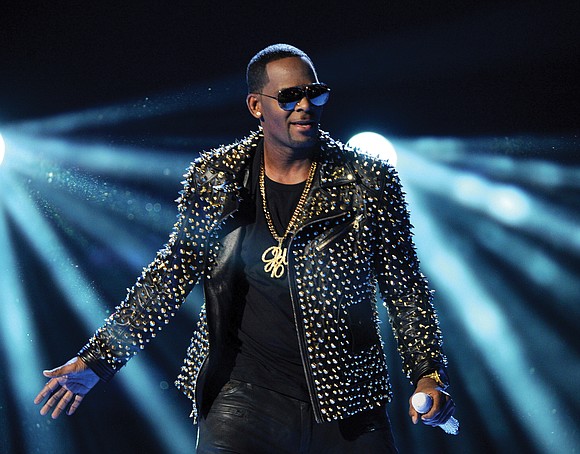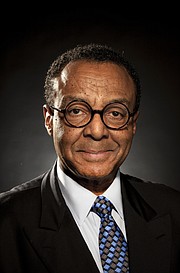R. Kelly and whether black girls’ lives matter
Clarence Page | 1/11/2019, 6 a.m.
After viewing “Surviving R. Kelly,” Lifetime’s riveting six-part documentary on the R&B star’s decades of child and sexual abuse allegations, one question rings out to me above all others: Do black girls’ lives matter?
Or as film star Jada Pinkett Smith said with alarm Sunday in a video tweet following reports that streams on Spotify of his 2002 single “Ignition” surged by 16 percent after the documentary’s first night: “I really don’t want to believe that it’s because black girls don’t matter enough. Or is that the reason?”
Good question. But in more hopeful news, there also was a 20 percent surge in calls to the sex abuse hotline operated by the Rape, Abuse and Incest National Network after the docu-series, which scored 1.9 million viewers in the Nielsen Media Research ratings, the network’s best performance in more than two years.
Allegations of sexual misconduct have dogged Robert Sylvester Kelly, the 52-year-old Chicagoan’s full name, for almost all of his career of 30-plus years as one of the biggest-selling stars in recorded music.
But for the first time, this documentary lets us hear some of these now women tell their own stories. The result is a shocking parade of horribles that, despite blanket denials by Mr. Kelly and his legal teams, still raise questions as to how many strings he and his support network had to pull to keep him out of prison.
African-Americans made R. Kelly soar. They always had the power to bring him down.
In 1994, there was his marriage at age 27 to Aaliyah, a rising music star who was only 15, although as the documentary shows, she was listed as 18 on the marriage certificate. Months later, the marriage was annulled and she died in a plane crash in 2001.
By then, new allegations emerged in lawsuits. In 1996 and 2001, lawsuits accused him of having sex with two underage girls, ages 15 and 17. Both settled out of court.
In 2002, a videotape surfaced that appears to show Mr. Kelly having sex with and urinating on a much younger-looking girl than the two who sued him. He was indicted by a Chicago grand jury on 21 counts of child pornography.
But in a trial that dragged on like the one at the center of Charles Dickens’ “Bleak House,” Mr. Kelly was found not guilty in 2008 on all counts after the girl in the video refused to testify.
Last year, a new scandal erupted with accusations that Mr. Kelly was trapping women in a “sex cult,” which left them mostly cut off from their families. The documentary follows the parents of two of those women as they try to persuade their daughters to come home.
He was also known to hang out and meet girls at Hyde Park’s Kenwood Academy for years after he dropped out to start his music career. Did anyone notice this tall black superstar hanging around?
“We all noticed,” says Chicago writer Mikki Kendall in the documentary. “(But) nobody cared because we were black girls.”
Somebody needs to care. Social networks buzz with critics and defenders of Mr. Kelly who compare him to another superstar, Bill Cosby, who eventually was convicted after decades of rumors that he drugged and raped women — almost all of whom happened to be white women.
But in this age of Twitter, the #MeToo movement and the Time’s Up campaign, there’s also new hope. The Lifetime documentary has helped give new life to another recent hashtag, #MuteRKelly, a movement that pushes for boycotts of his albums, concerts, web streaming and radio airplay.
In one stunning victory for Time’s Up, an R. Kelly concert was canceled last April at the University of Illinois at Chicago after student protests. But another familiar and troubling question looms for the rest of us who object to Mr. Kelly’s alleged offenses.
It is the same question raised about Mr. Cosby, Woody Allen and others who have been caught up in sexual misconduct allegations: Can we separate the artist in our minds from our appreciation of his or her art?
R. Kelly often is called a “genius” because of his hits, which range from the sexually raunchy to the near sacred, such as “I Believe I Can Fly,” a hit that is sung in churches, kindergartens, graduation ceremonies and talent shows around the globe.
But it’s hard to choose between the man and his music when the man has put so much of himself into his music.
Yet now, even if I happen to hear his biggest hit come over the sound system in a shopping mall, it’s going to sound like “I believe I can lie.”








